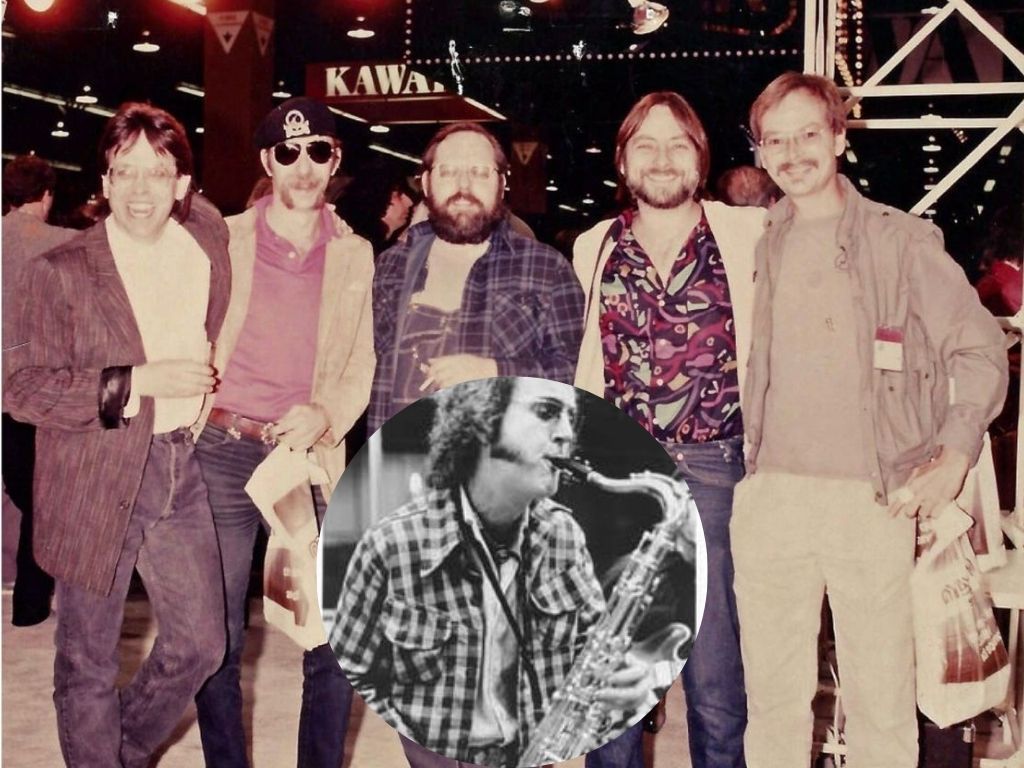
A Catchy Tale of Unattainable Hollywood Stardom
In the late 1970s, as the disco beat throbbed relentlessly through a thousand dance floors, a different kind of rhythm was quietly but confidently taking hold of the airwaves. It was a sophisticated, meticulous, and often cynical sound, one born from the minds of two men who were as much producers and perfectionists as they were songwriters: Walter Becker and Donald Fagen, the masterminds behind Steely Dan. Their 1977 album, Aja, was a landmark achievement, a fusion of jazz-rock that elevated pop music to an art form, and nestled within its polished grooves was a track that would become a fan favorite and a testament to the band’s unique brand of musicality: “Peg.” This isn’t just a song; it’s a meticulously crafted narrative, a wistful and slightly melancholic glimpse into the fleeting, often harsh, world of show business, painted with the lush, intricate brushstrokes that only Steely Dan could provide.
When Aja hit the scene, it wasn’t just another album; it was a phenomenon, a critical and commercial triumph. “Peg” itself was released as the album’s second single in early 1978 and quickly found its footing on the charts. It peaked at a respectable #11 on the Billboard Hot 100, a solid showing for a song that, by many standards, was anything but a typical pop hit. It was a sophisticated piece of music, a complex arrangement of instruments and melodies that dared to defy the simplistic formulas of the day. The song’s success was a testament to the fact that even in an era of sugary pop and bombastic rock, there was still a significant appetite for music that challenged and engaged its listeners, music that rewarded careful attention with a wealth of subtle details.
The story behind “Peg” is as intricate as its musical composition. Lyrically, the song is a character study, a portrait of a hopeful young actress trying to make her way in the unforgiving landscape of Hollywood. Becker and Fagen, with their trademark wit and often sardonic eye, capture the bittersweet essence of her journey. The lyrics, “She’s a winner, she’s a star / She’s got money, she’s got a car,” paint a picture of initial success and glamour, but the repeated, almost obsessive refrain, “Peg, it will come back to you,” carries an undercurrent of doubt and a haunting sense of impermanence. The name “Peg” itself is a nod to a real person, a friend of the band, but the character in the song is a composite, an archetype of the starry-eyed hopeful who gets caught in the machinery of a dream factory. The song’s meaning, therefore, is a poignant commentary on the ephemeral nature of fame and the often-unfulfilled promise of stardom. It’s a cautionary tale wrapped in a velvet glove of smooth jazz-rock, a reflection on how success can be as elusive as it is intoxicating.
Beyond its compelling narrative, “Peg” is also a showcase of the incredible musical talent that Steely Dan consistently brought to their records. The song features a legendary guitar solo by Jay Graydon, a solo that was the result of a painstaking and notoriously lengthy recording process. The band’s commitment to perfection was such that they had multiple guitarists attempt the solo before they were satisfied with Graydon’s masterful, concise, and unforgettable performance. But perhaps the most enduring and memorable part of “Peg” is its iconic chorus, driven by the soulful and instantly recognizable vocal talents of Michael McDonald, who provided the distinct backing vocals that give the song its signature warmth and depth. The interplay between Fagen’s lead vocal and McDonald’s soulful harmonies creates a call-and-response that is both musically brilliant and deeply emotional, pulling the listener into the story of this ambitious but perhaps doomed character. The song also features the remarkable talents of Tom Scott on saxophone, whose contributions to the album and this song in particular, added a layer of sophistication and jazz sensibility that became a hallmark of the Aja sound. The saxophone solo at the end of the song is a perfect blend of melodic structure and improvisational flair, bringing the song to a powerful and moving close. “Peg” is more than just a song; it’s a time capsule of a particular moment in music history, a masterpiece of studio craftsmanship, and a timeless reflection on the human desire for recognition and the bittersweet reality that often accompanies it.